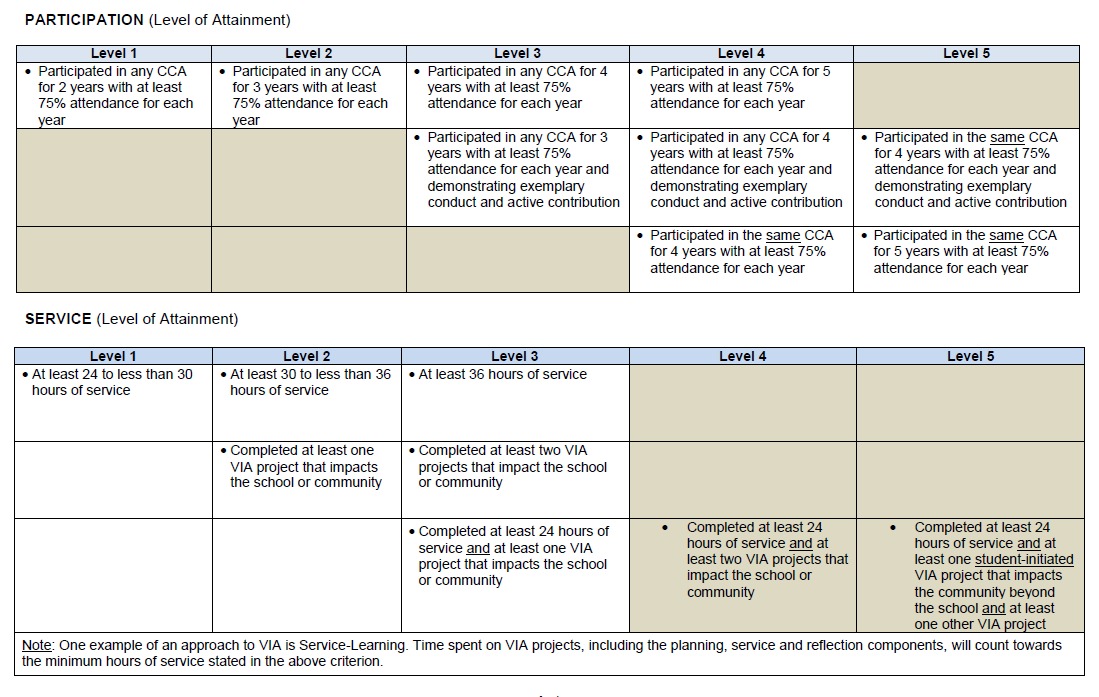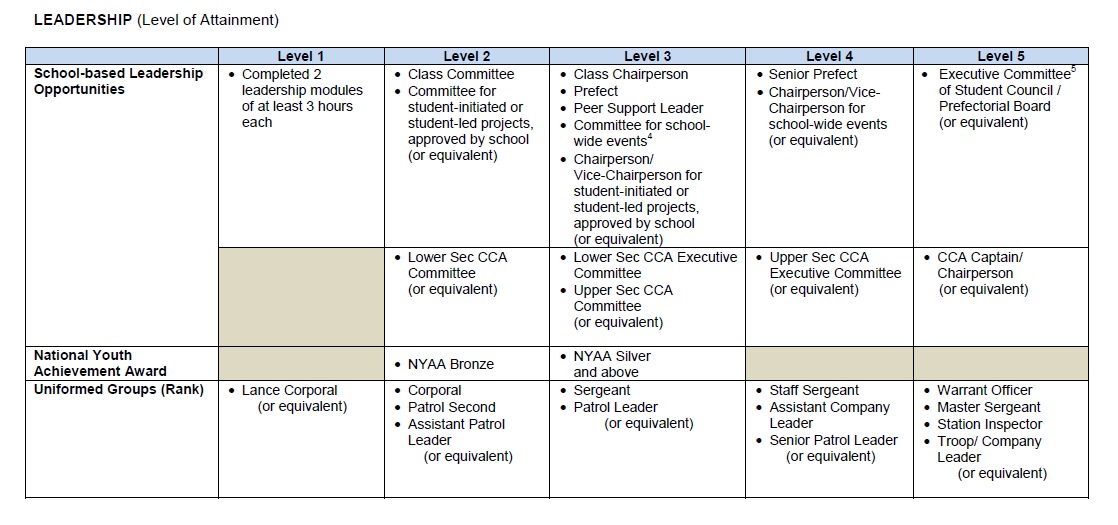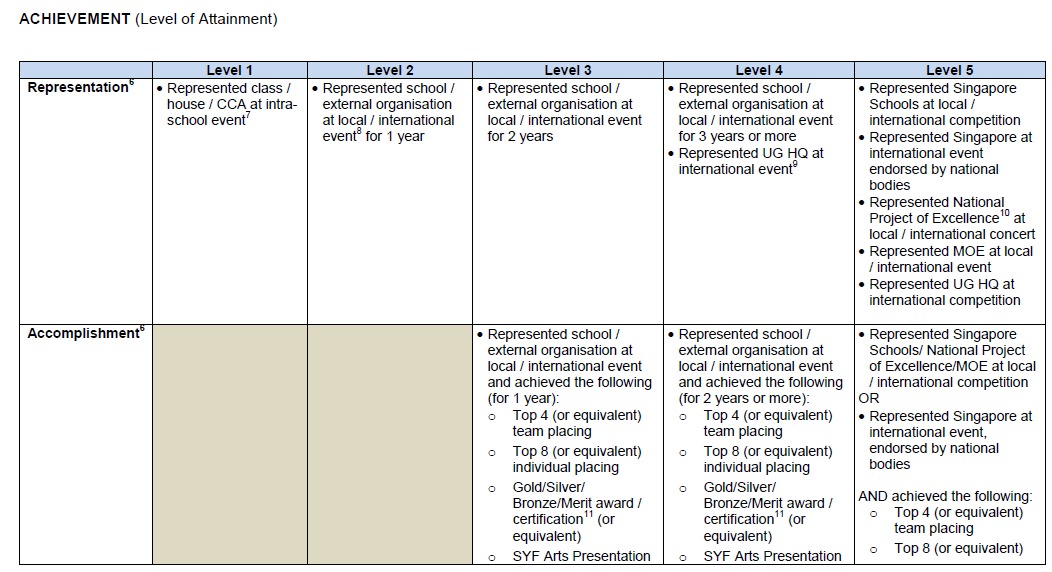LEAPS 2
LEAPS 2.0
A Holistic Education for Secondary School Students
A holistic education provides students with a broad and deep foundation for lifelong learning. This includes learning not just in the academic areas. Equally important is the development of values and life skills in each child. This will equip the child to handle the challenges in life later on. A holistic education also supports students to discover their strengths, interests and talents. Students tend to flourish in areas they are interested in. Thus, as far as possible, we should allow them to pursue their areas of interest. Schools offer a range of co-curricular programmes to help students achieve a holistic education. Community service is also invaluable in helping students develop qualities such as care, concern and respect for others in society.
LEAPS 2.0 is a framework to recognise secondary school students’ holistic development. Students will be recognised with levels of attainment in four domains:
i. Participation ii. Achievement iii. Leadership iv. Service
Participation
This domain recognises students’ participation in one school-based2 Co-Curricular Activity (CCA). Recognition is based on the number of years of participation and exemplary conduct and active contribution3 to the CCA. Sustained engagement in the same CCA allows for progressive development of character, skills, knowledge and friendships, and will be accorded higher recognition.

Service
This domain recognises students’ development as socially responsible citizens who contribute meaningfully to the community. Every secondary school student will contribute at least 6 hours per school year to the community. They can choose to embark on a Values-In-Action project (VIA). Students will be recognised for the time they put into planning, service and reflection, when participating in a VIA project.
Leadership
This domain recognises students’ leadership development. Recognition is accorded to students’ ability to take charge of personal development, work in a team and assume responsibilities in service of others. In addition to formal leadership appointments, participation in student leadership modules/workshops, the National Youth Achievement Award (NYAA) and leadership positions in the school, CCA or student-initiated/student-led projects will also be recognised.

Achievement
This domain recognises students’ representation and accomplishment in co-curricular involvements beyond the classroom. Opportunities for representation and accomplishment present valuable learning experiences for students to learn discipline, resilience and develop their character. Students may represent the school or organisations endorsed by the school. Recognising external opportunities better caters to students’ diverse interests and talents. It also recognises the community’s role in developing the child. Representation refers to being selected and endorsed by the school or an organisation endorsed by the school (e.g. the community club or national association) to contribute, perform or compete. It need not be tied to his/her CCA in school. Accomplishment refers to attaining accolades and awards at competitions, festivals, performances, exhibitions, conferences and symposiums where the student represents the school or other organisations endorsed by the school.
The details on the levels of attainment for each of the domains are as attached.


